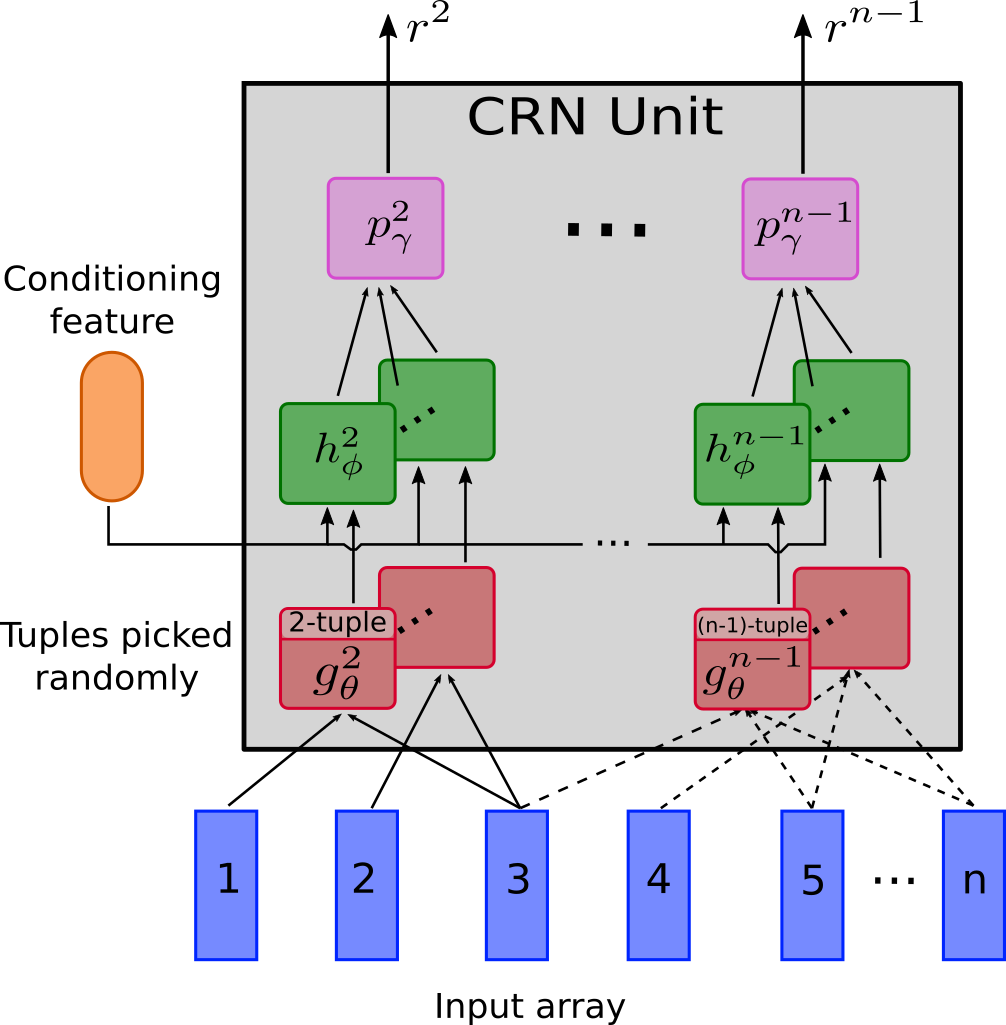Hierarchical Conditional Relation Networks for Video Question Answering
Video question answering (VideoQA) is challenging as it requires modeling capacity to distill dynamic visual artifacts and distant relations and to associate them with linguistic concepts. We introduce a general-purpose reusable neural unit called Conditional Relation Network (CRN) that serves as a building block to construct more sophisticated structures for representation and reasoning over video. CRN takes as input an array of tensorial objects and a conditioning feature, and computes an array of encoded output objects. Model building becomes a simple exercise of replication, rearrangement and stacking of these reusable units for diverse modalities and contextual information. This design thus supports high-order relational and multi-step reasoning. The resulting architecture for VideoQA is a CRN hierarchy whose branches represent sub-videos or clips, all sharing the same question as the contextual condition. Our evaluations on well-known datasets achieved new SoTA results, demonstrating the impact of building a general-purpose reasoning unit on complex domains such as VideoQA.
PDF Abstract CVPR 2020 PDF CVPR 2020 Abstract








 MSR-VTT
MSR-VTT
 MSVD
MSVD
 TVQA
TVQA
 MovieQA
MovieQA
 TGIF-QA
TGIF-QA
 SUTD-TrafficQA
SUTD-TrafficQA
